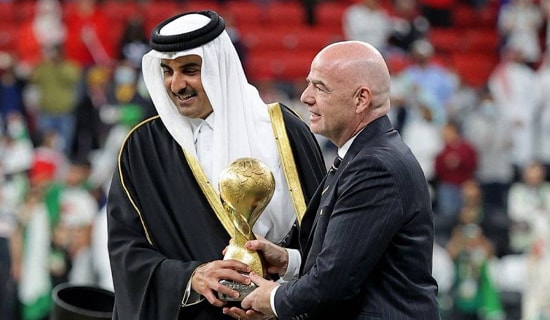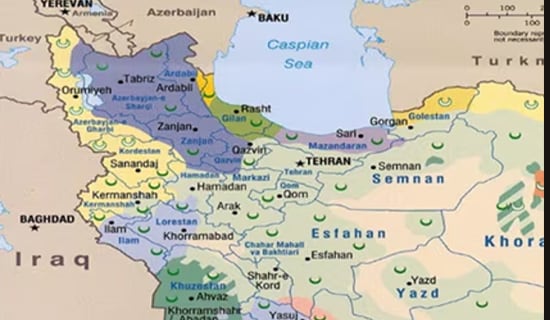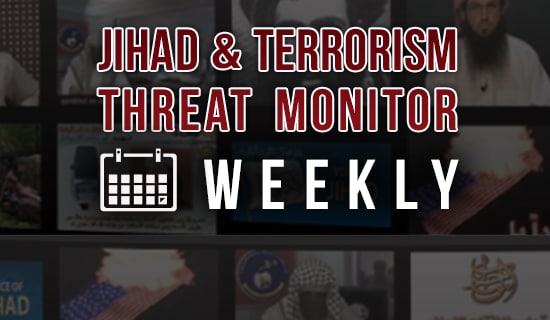The following is the fourth dispatch in the series on Iran and the recent escalation on Israel's borders. [1]
Today's (July 16) G8 summit dealt mainly with the developing crisis in the Middle East.Before the start of the summit, Russia, which is hosting the summit -which is also Iran's primary supporter on the nuclear issue and has consistently opposed sanctions - restated its position that "too much pressure on Iran over the nuclear issue will lead to a political dead end." [2]
Spokesman for the Iranian Foreign Ministry Hamid-Reza Asefi, said: "We will wait for the summit and its outcome. The G8 have two options to choose from: One is a wise path and [the adoption of] reasonable recommendations, and the other is an unreasonable one." [3]
In another related development, Secretary of Iran's High Commission for National Security and envoy of Iranian Supreme Leader Ali Khamenei, Ali Larijani, who is in charge of the nuclear dossier, made a surprise visit on July 15, 2006 to Saudi Arabia in order to discuss "the state of affairs in Lebanon and in the Palestinian territories," and passed on a letter from Iranian President Ahmadinejad to Saudi King 'Abdallah. [4] It should be noted that Saudi Arabia is leading the Arab criticism of Hizbullah and Iran.
During July 14-16, 2006, the Iranian, Lebanese, and Syrian media published articles and statements on the emerging conflict between Israel and Hizbullah. The following are excerpts:
IRANIAN REACTIONS
Iranian President Ahmadinejad's Threats: Israel's Invasion of Lebanon is an Encroachment Against the Islamic World
Iranian President Mahmoud Ahmadinejad said: "If [Israel's supporters] do not revise their support for the regime or fail to topple it, they should know that this wrath [will] turn into a huge outburst, which [will] not be restricted to the region alone." [5] He added that "the Israeli invasion of Lebanon is an encroachment against [all] the nations in the region." [6]
The Iranian Intelligence Minister Threatens: Iran Will Target All of America's Interests All Over the World
Iranian Intelligence Minister Gholam-Hossein Mohseni-Ezhei said on July 13 that "if America or any other country attacks Iran, it will be endangering its interests and its economic, political, and societal life." He added: "The same country that intends to attack Iran needs to know that it will pay an exorbitant price. America doesn't have the courage to take such an action against Iran, since in this event we will endanger all of its crucial interests. The geographical borders of our war against the Americans will not be limited just to American soil. To the contrary, we will target all of this country's interests all over the world." [7]
Iranian Defense Minister: If the Islamic World Undertakes Military Action, Israel Will Regret its Crimes
Iranian Defense Minister Mustafa Najar said that "the Islamic world sees America as responsible for Israel's crimes... America has turned the region into a flashpoint of war and conflict in order to secure Israel's security and to completely take over the oil resources.
He warned: "The continued bombing of Lebanon and the potential attack against Syria will not bring anything to the Zionist regime apart from damage and regret... Victory belongs to people who, in order to defend their religion and their homeland, stand, as oppressed men and with nothing but their bare hands, and face the regime that is equipped with nuclear weapons... In the event that the Islamic world undertakes a serious action, Israel will regret its crimes." [8]
Vice-Secretary of the Iranian National Security Council Claims That "The American Theoreticians [Think That] World War II [sic] has Begun" and Added: "Iran Will Play a Decisive Role"
Vice-Secretary of the Iranian National Security Council Gholam-Reza Rahmani-Fazli said at a meeting of senior Basij officers in the city of Mashad that "the Iranian nuclear issue is the primary challenge facing Iran and the West." He claimed that the "American theoreticians" think that "World War II [sic] has begun" and added that "Iran will play a decisive role in this kind of war." [9]
Tehran Times: Support for Israel Will Endanger the Entire World... and Undermine the World Economy
An editorial titled "Israel Is Pushing the Region into Utter Chaos," published in the Iranian Foreign Ministry daily Tehran Times, which is affiliated with Iran's Supreme Leader Ali Khamenei, warned the superpowers that continued support for Israel "will harm the whole world, from exacerbation of the global security situation to undermining the world economy."
Tehran Times also noted that "the attack on Lebanon has already sent oil prices skyrocketing to an unprecedented high of $78 per barrel," and called on the participants in the G8 summit to "send Israel a strong message to halt its mad rush towards Armageddon." The daily added that Israel could not afford a lengthy war with the resistance [i.e. Hizbullah]. Even the U.S., it said, was forced to withdraw from Beirut in the early 1980s following Hizbullah's suicide attack against the Marines. [10]
Further Reactions and Threats
Hossein Shariatmadari, the conservative daily Kayhan's editor who is affiliated with Iran's Supreme Leader Khamenei, stated on July 13, 2006: "The Hizbullah attack... is the beginning of a new chapter in the struggle against Israel, which will change the regional balance of power in favor of the Islamic world... Though the regime that occupies Jerusalem has modern weapons, it is a small regime with a small population. Further attacks will very soon [lead to] the annihilation of this small regime." [11]
Commander of the Revolutionary Guards General Yahya Rahim Safavi, accused America of being behind the attacks with the aim of concealing its failures in Iraq, in Afghanistan and in the campaign to [spread] democracy in the Middle East. [12]
Iranian Military Source: The Revolutionary Guards are Assisting Hizbullah
An Iranian military source close to the Revolutionary Guards leadership revealed to the London Arabic daily Al-Sharq Al-Awsat details concerning Iran's role in training and arming Hizbullah:
"Firstly, in 1985, the Revolutionary Guards established the Hizbullah missile unit which was trained in Lebanon, at the Sheikh 'Ubeidallah Military Base in the Beqa'. About 2000 men from the Revolutionary Guards were in this base, which served as their headquarters. [In 1989,] when the Lebanese civil war ended, and the Taif Agreement was signed and most of the Revolutionary Guards left Lebanon, between 150 and 250 Hizbullah [fighters] were trained by the best Revolutionary Guards trainers, who stayed in Lebanon...
"Secondly, special training courses [for Hizbullah fighters]were organized in Iran, and so far, over 3,000 Hizbullah [fighters] have taken them. The [courses] included training in guerilla warfare, missile aiming and launching, [use of] artillery, handling of unmanned aircraft, use of 'kites' [i.e. hang gliders], naval warfare techniques, handling of speedboats and conventional warfare.
"Thirdly, in the last three years, 50 pilots have been trained.
"Fourthly, The Revolutionary Guards established 20 permanent missile bases within the strip [running along] the Israeli border. They also equipped Hizbullah with mobile bases, [i.e.] medium-sized trucks that can carry and launch missiles. Between 1992 and 2005, Hizbullah recieved approximately 11,500 missiles and rockets, 400 short- and medium-range pieces of artillery, [and] Aresh, Nuri and Hadid rockets. Last year, Hizbullah first received a shipment of large 'Uqab missiles with 333-millimeter warheads, and an enormous supply of SAM7 shoulder-[fired] anti-aircraft missiles as well as C802 missiles, copied from Chinese missiles, two of which were used in the attack on the Israeli ship the day before yesterday.
"Hizbullah [also] has four types of advanced surface-to-surface missiles:
"1. Fajr missiles with an effective range of 100 km.
"2. Iran130 missiles with an effective range of 90-110 km.
"3. Shahin missiles with an effective range of 150 km.
"4. 335-millimeter rockets with an effective range of 150 km."
The source also stated that "in Lebanon, there are 70 trainers, experts and technicians, as well as 60 Faylaq Quds [13] intelligence agents, who assist the Hizbullah missile unit and its local leadership. In addition, there is a secret Revolutionary Guards unit, consisting of 20 officers, who use advanced means to track the movement of the Israeli forces in the field, and select targets in Israel for the operation commanders."
The Iranian source concluded: "Hizbullah has not yet revealed its full [arsenal]. In the next few days, if the Israeli attacks on Lebanon continue, Hizbullah will stun everyone with weapons that will shock the center of Israel." [14]
LEBANESE REACTIONS:
Early July Meeting Between Lebanese PM Al-Siniora and Iranian FM Mottaki Discussing Iran's Nuclear Program
An Iranian source reports that a meeting held in early July between Iranian Foreign Minister Manucher Mottaki and Lebanese PM Fuad Al-Siniora dealt both with Hizbullah's Iranian-sponsored activity and with the Iranian nuclear program. According to the Iranian report, Al-Siniora said in the meeting that he is opposed to "Iranian intervention in his country's domestic affairs." Regarding the nuclear issue, Al-Siniora said: "We do not agree that Iran must have nuclear [capabilities]." The reports also stated that Al-Siniora has decided to visit Tehran for talks with Iranian President Ahmadinejad. [15]
Hizbullah Secretary-General Nasrallah: You Wanted Open War - We are Heading for Open War
Hizbullah Secretary General Hassan Nasrallah, in an address delivered by telephone on July 14, said that the current fighting is "the noblest battle of the modern age - in fact, the noblest battle known to history." He also said that he would not address "a single word to the international community, since I have never believed for a single day, unlike many in our nation, that there is such a thing as the international community."
He continued: "What is going on today is not a reaction to the prisoner-taking operation, but rather it is a settling of scores with the people and with the resistance... Thus today there is a total war that Zionists are waging in order to totally settle the score with Lebanon and the Lebanese people... in retaliation and in revenge for what occurred on May 25, 2000 [i.e. the Israeli withdrawal from southern Lebanon]."
To the Lebanese people he said: "We stand before two options... Either we submit to the [Israelis'] total conditions, which would mean taking Lebanon into the Israeli era and Israeli hegemony - and in all honesty these are the true dimensions of the affair - or else we stand fast... When there was [Operation] Grapes of Wrath in 1996, or [Operation] Accountability in 1993, at first the conditions were difficult, but today things are different. Have complete trust in me that today things are different."
Addressing "the Zionists", he said: "It will quickly become evident how foolish and ignorant your new government and your new leadership are and that they don't have a true appreciation of matters and that they don't have any response... The equation has changed... you wanted open war, and we are heading for open war and we are ready for it - all-out war, up to Haifa, and believe me, what is beyond Haifa, and what is beyond what is beyond Haifa... That time [i.e. the 'old equation'] has past - all that was before 1982, and before 2000. That time has past."
To the Arab leaders he said: "So [you say] we are adventurers. We in Hizbullah are indeed adventurers, but we have been adventurers since 1982. You said about us, and the world said about us, that we are madmen, but we have proven that it is we who are the rational ones..."
In closing, he said: "The surprises I promised you will begin now. Right now, at sea off the coast of Beirut, is the Israeli warship that attacked our infrastructure and our houses and our people and our civilians. Look at it burn, and it will sink, and with it tens of Zionist soldiers. This is the beginning..." [16]
Lebanese PM Fuad Al-Siniora: Call for a General and Immediate Cease-Fire
Lebanese PM Fuad Al-Siniora gave a speech on July 16, 2006, in which he called for a general and immediate cease-fire. In addition, Siniora called for taking steps toward extending the government's control over all of its territories in cooperation with the UN in southern Lebanon. [17]
Other Lebanese Reactions
In an interview with Al-Arabiya TV, Lebanese Druze leader Walid Jumblatt said: "What is happening now in Lebanon is part of the struggle between Syria and Iran on the one side and Israel on the other." Regarding the reports about Iranians currently fighting in Lebanon, he said: "Iran is saying to the U.S.: '[If] you want to fight in the Gulf or hit our nuclear facilities, we will hurt you in your home, in Israel, and the battlefield is naturally Lebanon...
"On March 14, [2005] there was a revolution [in Lebanon calling for] independence, an end [to being a] Syrian protectorate, and [establishment] of diplomatic relations [between Syria and Lebanon]. We insisted on delineating the border in the Shab'a [Farms], and I think the Syrian [response] has now come. We have received a response of war. 'No' to delineating the border [between the two countries] and 'no' to diplomatic relations. The Syrian regime is bearing a grudge [and saying to the Lebanese]: 'You dared to rebel against [being] a [Syrian] protectorate, [so] this is our reaction. Our answer will be destruction." [18]
Samir Geagea, Chairman of the executive branch of the Lebanese Forces, said: "What is currently happening in Lebanon goes far beyond the issue of the [Lebanese] prisoners [held in Israel] and other marginal issues... [It is] part of the large conflict in the region between the Western-American axis on the one side and the Syrian-Iranian axis on the other." [19]
Walid 'Ido, a Lebanese MP from the Mustaqbal faction, said that "this war will not end until we make the decision that Lebanon is taking back for itself all of the playing cards, and like the rest of the Arab countries, it will be it [that decides the question of] war or peace." [20]
SYRIAN REACTIONS:
Syria Threatens an Unconstrained Reaction in Case of Israeli Attack
Syrian Information Minister Mohsen Bilal said on July 16, 2006, that "any Israeli aggression towards Syria will trigger a strong and direct reaction, with no constraints on the duration [of the reaction] or on the means [employed]." [21]
Editorials in Syrian government papers criticized the reactions of the Arab states that are characterized, according to the writers, by silence and indirect support of the "Israeli attack". An editorial from Al-Thawra states: "While some Arab states spread the culture of defeat, the Arab peoples have held up the slogan of resistance and of the sacrifices it entails. It seems that the [Arab] peoples understand the scope of these sacrifices and are willing to [make] them far more than their leaders! This is the time to express solidarity with the resistance [and] to support it, believe in it and remain loyal to its goals. Right now, nothing is desirable if it is not for the sake of the resistance." [22]
An editorial in the Syrian government daily Teshreen read: "With the blessing of the Americans, and [with] shameful, reprehensible silence on the part of the Arabs, Israel wants to redraw the map of the region, starting with Lebanon... The [Arab] silence has become an overt conspiracy which aims to stab the resistance in the back, instead of [letting] the Arabs [defend] their lives and honor. The crime continues and the region is in flames. When will we express our solidarity, if not now?!" [23]
[1] For the previous MEMRI reports, see: Iran and the Recent Escalation on Israel's Borders, Iran and the Recent Escalation on Israel's Borders (2): Reaction in Iran, Lebanon, and Syria, and Iran and the Recent Escalation on Israel's Borders (3): Reactions in Iran, Lebanon, and Syria.
[2] From Putin's statement; IRNA (Iran), July 14, 2006.
[3] IRNA (Iran), July 16, 2006. Iran on Sunday recommended the G8 to adopt a reasonable course of action concerning the nuclear issue. Foreign Ministry spokesman Hamid-Reza Asefi made the comment at his weekly press briefing and in reference to the G8 summit, which opened in St. Petersburg, Russia, on Sunday. He said that if the G8 adopts a reasonable course, then "the Islamic Republic of Iran is ready for any kind of negotiations."
[4] Tehran Times (Iran), July 16, 2006.
[5] IRNA (Iran), July 16, 2006.
[6] IRNA (Iran), July 14, 2006.
[7] IRNA (Iran), July 16, 2006, http://www.irna.ir/fa/news/view/line-2/8504259863110433.htm.
[8] IRNA (Iran), July 16, 2006, http://www.irna.ir/fa/news/view/line-2/8504258298120402.htm.
[9] IRNA (Iran), July 15, 2006.
[10] Tehran Times (Iran), July 15, 2006.
[11] Kayhan (Iran), July 16, 2006, http://www.kayhannews.ir/850425/2.htm#other200.
[12] Iran Daily (Iran), July 16, 2005.
[13] Faylaq Quds is a special force belonging to the Revolutionary Guards that operates in Iraq.
[14] Al-Sharq Al-Awsat (London), July 16, 2006.
[15] Aftab News Agency, July 3, 2006, http://www.aftabnews.ir/vdcirzat1yav5.html.
[16] Al-Mustaqbal (Lebanon), July 16, 2006.
[17] Al-Mustaqbal (Lebanon), July 16, 2006.
[18] Lebanese News Agency, July 16, 2006.
[19] Al-Mustaqbal (Lebanon), July 15, 2006.
[20] Al-Mustaqbal (Lebanon), July 16, 2006.
[21] Syrian Arab News Agency, July 16, 2006.
[22] Al-Thawra (Syria), July 16, 2006.
[23] Teshreen (Syria), July 15, 2006.








